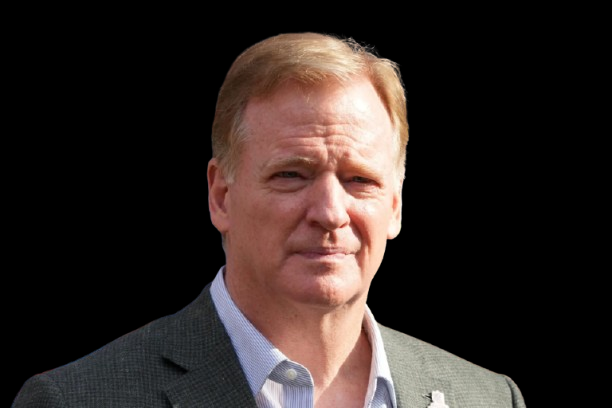Introduction to Roger Goodell
Roger Goodell has been the Commissioner of the National Football League (NFL) since 2006, and his leadership has significantly shaped the league’s growth, policies, and financial success. Over the years, his earnings have become a major talking point, not only due to their size but also because they reflect the NFL’s booming business model. Understanding Roger Goodell salary gives a glimpse into how the NFL operates at the highest level and rewards executive performance.
The Role of the NFL Commissioner
The NFL Commissioner holds one of the most powerful roles in professional sports. Goodell’s responsibilities include overseeing the league’s business operations, negotiating media and broadcasting deals, enforcing player conduct policies, and guiding the overall strategic direction of the NFL. This immense scope of responsibility explains why the position commands such a high salary and why Goodell’s performance directly impacts the league’s financial trajectory.
How Roger Goodell Became Commissioner
Roger Goodell started his career in the NFL as an intern in 1982 and climbed the organizational ladder through various executive roles. By the mid-2000s, he was the Executive Vice President and Chief Operating Officer of the league. In 2006, he was selected as the NFL Commissioner, succeeding Paul Tagliabue. His journey from intern to commissioner is a testament to his deep understanding of the league’s structure and business dynamics.
Base Salary and Performance Bonuses
Goodell’s salary is structured with a base pay combined with performance-based bonuses. While his base salary forms the foundation of his income, the majority of his earnings come from bonuses tied to revenue growth, labor peace with the players’ union, and successful completion of broadcasting and sponsorship agreements. This performance-based model aligns his interests with the financial success of the league.
Reported Salary Figures Over the Years
Over the years, Roger Goodell salary has consistently ranked among the highest for sports executives. In certain years, he has reportedly earned over $60 million annually, depending on bonus payouts and contract structures. These figures often fluctuate because his contracts are heavily incentive-driven, with bonuses sometimes exceeding his fixed salary. This makes his yearly income reflective of the NFL’s overall financial performance during that period.
Comparison with Other Sports Executives
When comparing Goodell’s salary with other sports league commissioners, he stands out as the highest paid. Commissioners of other major leagues like the NBA, MLB, and NHL earn significantly less, often ranging between $10 million to $20 million annually. Goodell’s earnings reflect the NFL’s dominance in revenue generation, television rights deals, and global brand influence, which surpass other sports leagues by a large margin.
Impact on NFL Revenue and Growth
One reason Goodell’s salary remains so high is his proven ability to grow the NFL’s revenue. Under his leadership, the league has negotiated record-breaking broadcasting deals, expanded international games, and increased sponsorship revenue. These accomplishments have directly raised the value of NFL franchises and contributed to the league surpassing $20 billion in annual revenue projections, justifying the financial rewards he receives.
Influence on Collective Bargaining Agreements
A key factor in Goodell’s compensation is his handling of collective bargaining agreements (CBAs) with the NFL Players Association. Successful negotiations that prevent labor strikes or lockouts are crucial for the league’s stability. Goodell’s ability to maintain labor peace has been rewarded with substantial bonuses, as disruptions could cost the league billions in revenue and damage its global reputation.
Public Perception of His Salary
Goodell’s salary has often sparked debate among fans, players, and the media. Some see it as excessive, arguing that no executive should earn more than the players who take the field. Others defend it, pointing to the NFL’s soaring revenues and Goodell’s role in driving that success. This debate underscores the tension between executive compensation and public perception in professional sports.
Role of Owners in Deciding His Pay
Goodell’s salary is not set unilaterally but is approved by the NFL’s 32 team owners. They determine his compensation based on performance metrics such as revenue growth, legal stability, brand expansion, and labor relations. The fact that owners consistently renew his contract and approve high bonuses shows they see his leadership as essential to their long-term profits and the league’s sustained success.
How Goodell’s Salary Reflects NFL Priorities
The structure and size of Goodell’s salary reflect the league’s priorities: profitability, stability, and global expansion. His contract is designed to reward him for growing revenue, negotiating lucrative TV deals, and avoiding costly disputes. This approach aligns his personal financial incentives with the business goals of the league, ensuring that he focuses on strategies that benefit owners and stakeholders.
Broader Economic Impact of His Leadership
Beyond just the NFL, Goodell’s decisions influence industries connected to football, including sports media, merchandise, sports betting, and advertising. His leadership has helped transform the NFL into a financial powerhouse that drives billions in economic activity each season. The ripple effect of the league’s growth helps justify the substantial salary paid to its commissioner.
Future Outlook for Goodell’s Earnings
As the NFL continues to expand globally and embrace new technologies like streaming partnerships and sports betting integrations, Goodell’s role is expected to remain highly lucrative. If the league meets its long-term revenue goals, his performance bonuses could push his annual compensation even higher, potentially setting new benchmarks for sports executives.
Conclusion
Roger Goodell salary symbolizes the extraordinary financial power of the NFL and the critical role its commissioner plays in maintaining and growing that success. While controversial at times, his earnings reflect measurable achievements in expanding revenue, securing labor stability, and elevating the league’s global presence. Understanding Roger Goodell salary offers valuable insight into the economics of professional sports and how executive performance is rewarded at the highest level.




